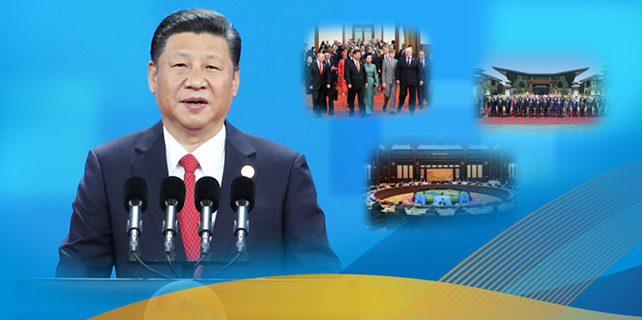Hindi film strikes emotional chord to top China box office
Over the weekend, a Hindi film created history in China.
Dangal, which translates to "wrestling match", has reached the top of the Chinese box office, in a first for Indian cinema. By Wednesday afternoon, the biographical film on an Indian wrestler who prepared his daughters for world-class competitions, had made 491 million yuan ($71.26 million), pushing Hollywood's Guardians of the Galaxy Vol. 2 to the second slot.
The 2016 Hindi film was released on the Chinese mainland on May 5 alongside this year's Marvel sequel, a much awaited film that got its largest global share from the Chinese market. Hollywood dominates the quota-based system, through which China allows 34 foreign films for general screening each year.
Of the dozen or so Indian films shown in the past decade, only two or three made any noticeable box-office gains in the country.
But Dangal has achieved a rare feat: commercial success, critics' reviews and a trending topic on Chinese social media.
Now playing by its Chinese title Shuaijiao Ba Baba (Let's Wrestle, Dad) on more than 10,000 screens in the country, the film was initially shown on about 7,000.
Set in northern India's Haryana state, the film follows the journey of Mahavir Singh Phogat, once a young wrestler whose sports career was truncated under parental pressure, to his days as an overweight, aging father who trains his feisty eldest daughter, Geeta, to win gold for India in the 2010 Commonwealth Games.
In the film, Phogat is at first seen yearning for a son to fulfill his big dreams from a small town that holds a conservative view of women. But soon the father of four girls realizes that gender is of little consequence and begins to coach Geeta and his second daughter, Babita, to win at international matches.
Dangal has resonated with the Chinese audience, especially the youth, owing to a combination of factors, analysts say.
The celebrity status in China of Bollywood star Aamir Khan, who plays the role of Phogat, the rise of China's own female Olympic athletes - in some cases from rural backgrounds - and the strong yet often unrecognized father-daughter bond in patriarchal societies such as India and China that the film seeks to present are being attributed as reasons behind the film's success.
Khan's three-city tour ahead of the film's release and his China outreach through an account on Sina Weibo, the country's Twitter-like platform, have helped in promoting Dangal.
"The most important reason is the film's narrative," says Tan Zheng, deputy director of editorial at the Chinese film magazine Dianying Yishu.
But a few social media commentaries ask why the film's feminism centers on a man. Although the main characters speak Hindi in a local dialect, and the film has yet to be dubbed for China, moviegoers seem to be able to follow Dangal with the help of Chinese subtitles, as observed during a recent visit to a Beijing theater.
The film may have also raised audience expectations from Bollywood in China.
Many Chinese viewers now see Indian movies as well-packaged, well-told stories, says Gu Wancheng, partner, Peacock Mountain Culture and Media Ltd, a Chinese company involved with Sino-Indian film coproduction.
For long, in common Chinese perception, Hindi cinema was a formulaic song-and-dance fare.
Khan also plays the lead roles in 3 Idiots, which is a comment on India's orthodox education system and in some ways similar to China's, and in PK, a fantasy flick that lampoons corrupt religious clerics. Both Hindi films made some money in China. India produces more than 1,000 films in 20 languages every year.
In 2016, the first part of the special-effects extravaganza Baahubali, made in different Indian languages, was released in China but fell short of trade estimates.
Before Khan, the most popular Indian actor in China was the late Raj Kapoor, whose film Awara (The Tramp) was screened before and after the "cultural revolution" (1966-76).
"A good character and a good story can help you cross borders," Khan was quoted by media as saying at the Beijing International Film Festival in April.
satarupa@chinadaily.com.cn
|
Dangal has won both box-office success and critical acclaim in China. Provided To China Daily |
(China Daily 05/18/2017 page20)










